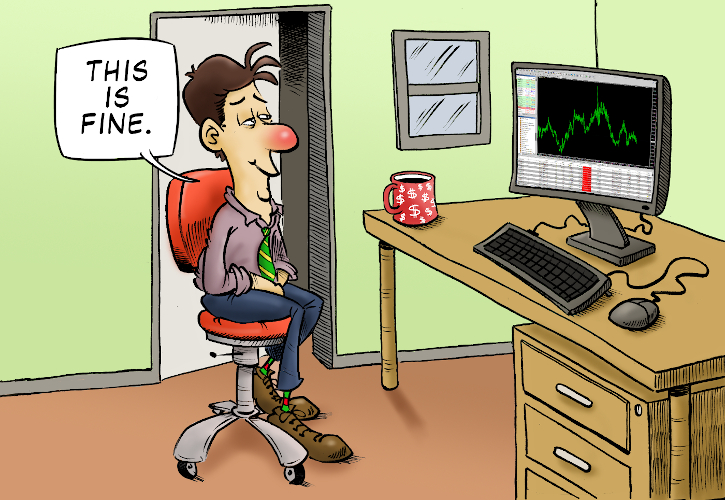Forex trading is inherently risky. And where there is risk, there is also stress because it is natural for humans to feel uneasy when involved in risky behavior. However, levels of stress probably vary a lot between different traders. It is also likely that different types of trading events exert different level of stress on traders.
The role of stress in Forex trading
Getting rid of stress entirely is probably impossible and could be even harmful in trading. It is useful to experience bad emotions when you make a mistake — it helps you to avoid it in the future. The problem with FX trading (and any other financial trading) is that not all stressful events are results of mistakes. A good strategy with a winning rate of 50–60% and an average

In the ideal case, stress helps us to be disciplined and commit less mistakes in trading. In reality, traders may experience lots of needless stress that doesn't help us at all. Some traders — mostly newbies who have just transitioned from demo to live trading — worry almost
Increased volatility in a currency pair you trade, unexpected fundamental or political news announcements, slippage and widened spreads, brokerage platform outages,
Lots of traders feel stressed when losing a trade that was sized to be much larger than their trading plan dictated. Usually, it is a good sort of stress. It reminds them that they should always follow their position sizing guidelines and rely on prudent risk management.
Coping with losses
Sooner or later, every FX trader gets struck with an unexpectedly big loss or a line of such losses. Sometimes, it is just the matter of time and trader's reaction to the resulting emotional and economical drawdown.
The first thing to do is to get rid of the bad emotions. There are many ways to loosen your mind and to stop thinking about the incurred loss. Getting an emotional discharge through alcohol (do not mix it with trading!), sports, computer games, mediation, or prayer is a common method employed by thousands of traders — both professional and
Often, especially if the trader failed to channel their negative emotions through something other than the market, there is an attempt to get a revenge on it. Revenge trading is a futile and often perilous endeavor, which is akin to overtrading and leads to even more disastrous results.
Taking a break from trading — short or long — might prove to be a great remedy in and of itself. It will help you to stay away from the revenge trading and will also heal your emotional wounds caused by a recent streak of losses. A good idea may be to increase the time spent on learning, reading books and doing all sorts of market analysis. Though, there should be some bounds to it too.
Switching strategy (to a new one) may also be a good idea, but only if you are sure that the resulting loss was a direct consequence of employing your current strategy, and that the same or worse may repeat in the future. In a milder case, switching to a smaller position size would probably be a more prudent solution.
Losing everything is not the end of the trading way for some traders, especially so for gamblers. They will just go to a bank and get a loan to cover their losses and probably make some new. Needless to say, trading on borrowed funds is a thing that should be avoided unless you really know what you are doing. But if you knew, how did you end up with such a huge loss in the first place?
Going off the market for some time is probably the most logical step when coping with a large loss. If the losses seem systematic, changing a trading strategy or some specific parts of it might be due.
If you want to talk about how you deal with big losses in Forex trading, please feel free to do so using the form below.
What exactly is causing stress in Forex trading? What is the most stressful part for you? How do you cope with it? What do you do when losses exceed your most scary expectations? Discuss this on our community forum!